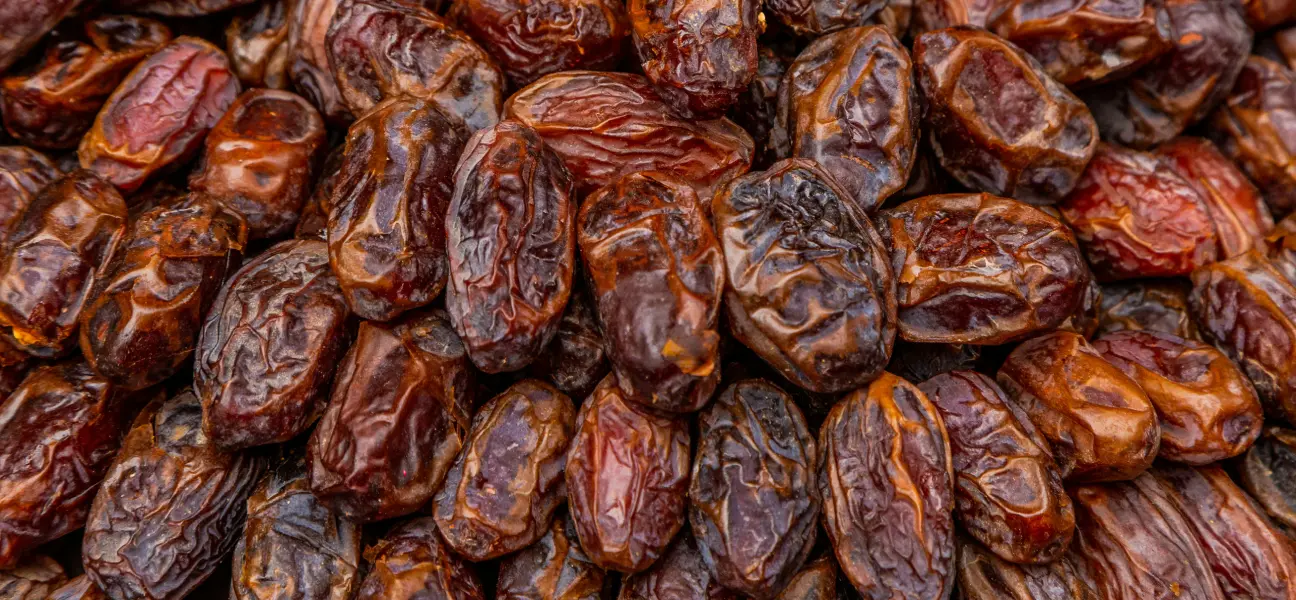
Dates are very important dried fruits in the food industry. They are valued for their natural sweetness, long shelf life, and flexibility in food production. The demand for dates is increasing in areas like candy, baking, and health foods. Because of this, B2B buyers should know the different types of dates available. This guide offers information on the main commercial varieties of dates, their features, and tips for buying them on platforms like Nutrada.
In the food business, knowledge is important. Knowing about the different types of date fruit can greatly help your supply chain management. Each type has unique features, like texture, sweetness, and how long it lasts. These factors can affect how you store them and what customers want. By learning about these varieties, you can make better decisions to improve efficiency and transparency in your supply chain.
Dates are among the most varied and valuable fruits in the world food market. Popular varieties include Ajwa, Ambera, Aseel, Barhi, Deglet Noor, Halawi, Khadrawy, Khudri, Mazafati, Medjool, Piarom, Rabbi, Safawi, Sayer, Sukkari, Thoory (Thuri), Zahidi.
Next, we will talk about some of the most popular options from the ones we just mentioned.
Medjool dates, often referred to as the "king of dates," are renowned for their large size, soft texture, and rich, caramel-like flavor. Originating from Morocco, they are now predominantly cultivated in the United States and the Middle East. Medjool dates are particularly popular among consumers seeking a natural sweetener or a nutritious snack.
Deglet Noor dates are known as the "queen of dates." These semi-dry dates have a mild flavor and a firm texture, making them great for snacking and cooking. They come from Algeria but are also grown in Tunisia and the United States.
Barhi dates have a special texture and taste that is similar to butterscotch. Unlike many other dates, they are usually eaten fresh. Originally from Iraq, Barhi dates are now grown in several places, including the United States and Egypt.
Ajwa dates are important in Middle Eastern culture, especially in Saudi Arabia where they are mainly grown. These small, dark dates have a rich, fruity taste and are often eaten for their believed health benefits.
Zahidi dates are known for their golden color and nutty taste. These semi-dry dates are great for snacking or adding to recipes. They mainly come from Iraq and the United States.
Selecting the right date variety depends on the intended application, processing requirements, and price considerations. Buyers should assess factors such as moisture content, texture, sugar levels, and shelf stability when choosing bulk dates suppliers. The global dates market was valued at USD 31.03 billion in 2024 and is projected to grow to USD 49.14 billion by 2032. In the United States, California is the leading date-growing state, producing a majority of the nation's total.
Nutrada helps businesses find reliable date suppliers. These suppliers offer bulk options for manufacturing and wholesale trade. Buyers can search by type of date, where it comes from, how it is processed (like pitted, diced, or paste), and any certifications (such as organic or fair trade). This makes it easier to meet specific needs in the industry.
There are many types of dates around the world. More than 200 different kinds have names, but the exact number can change depending on the area. However, in the commercial market, only about 10 to 15 types are most common.
Medjool dates are considered a premium soft date with a rich flavor, ideal for direct consumption and high-end products. Deglet Noor dates are semi-soft, making them more suitable for industrial processing and bulk ingredient use.
This depends on the application. Medjool is considered the finest for premium retail, Deglet Noor is best for industrial processing, and Ajwa holds religious and cultural significance in certain markets.